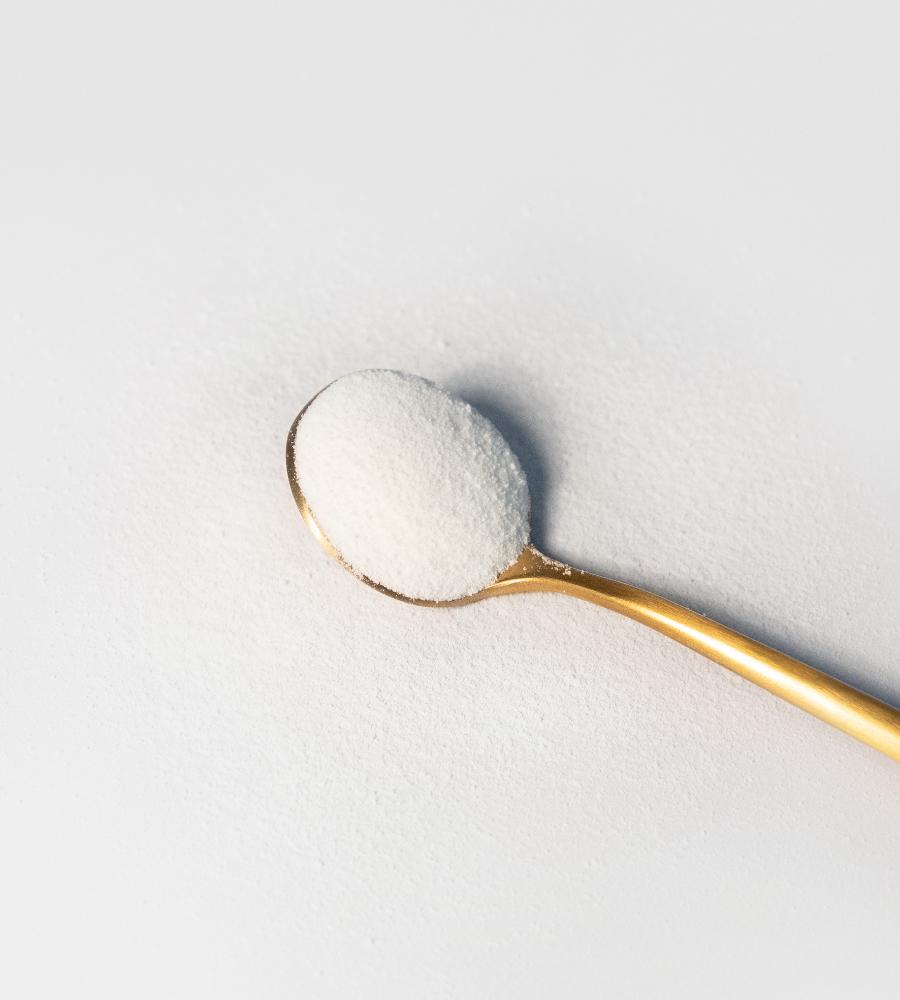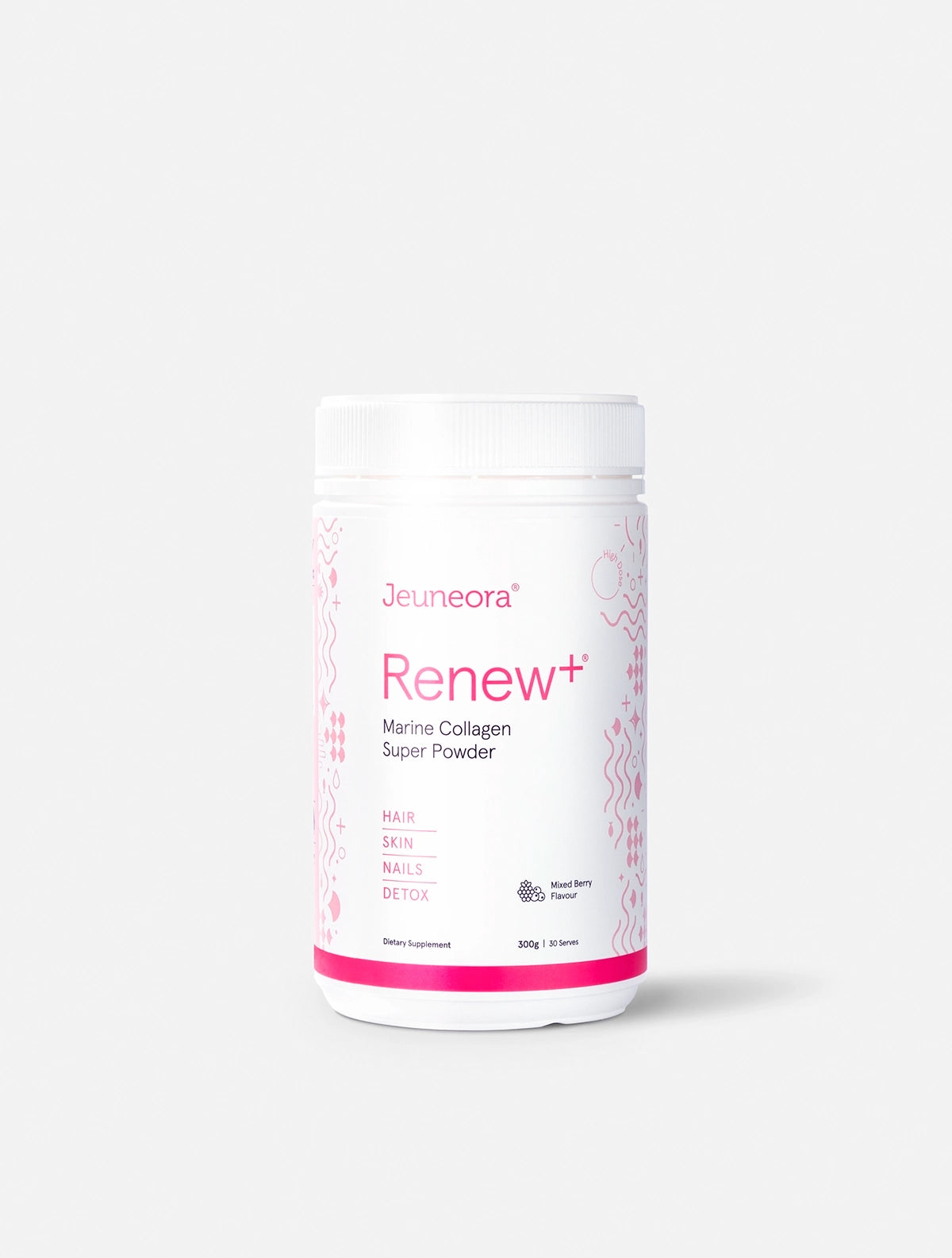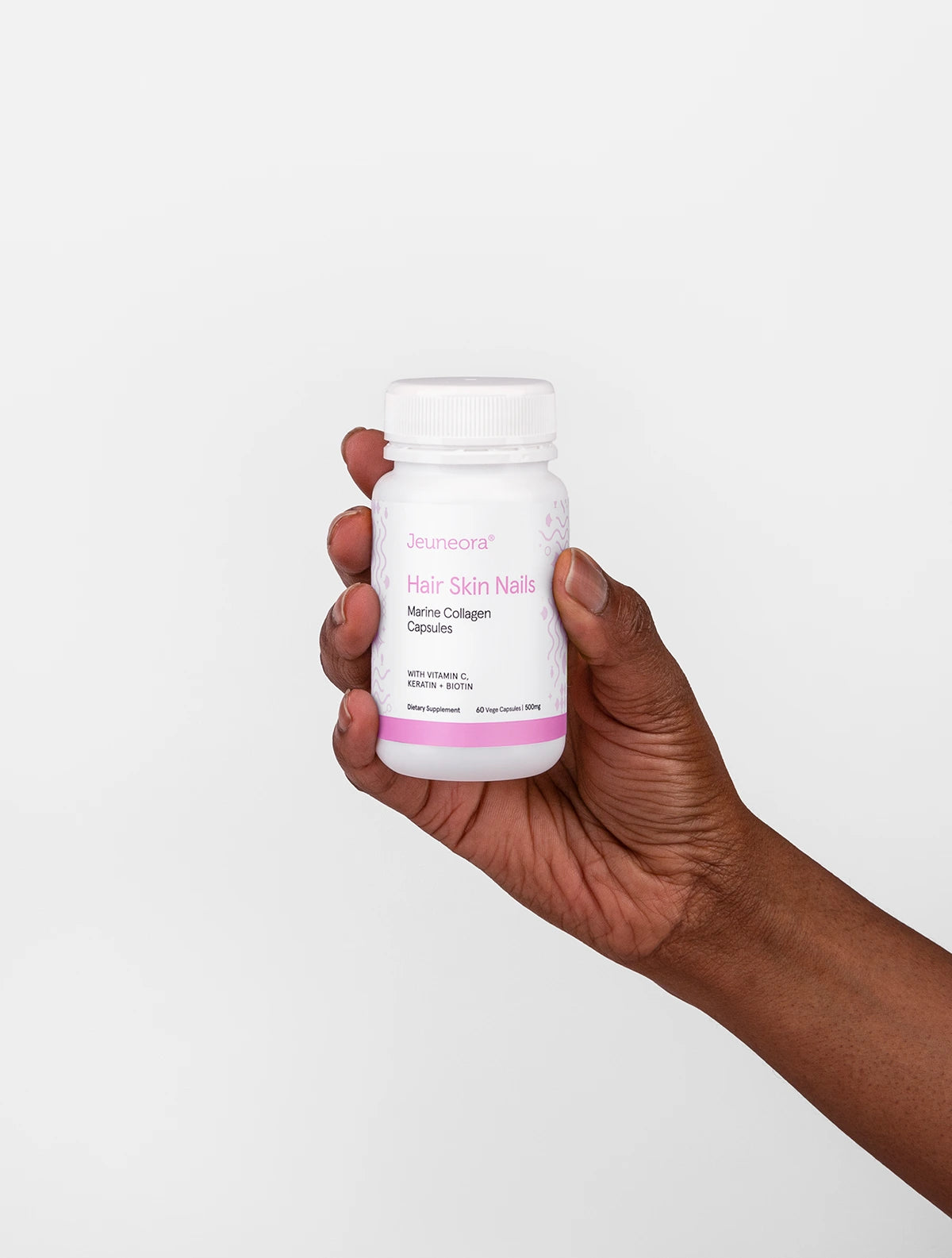
Which collagen is right for you?
September 20, 2019
In the 4 years since Jeuneora was established, the collagen hype has certainly grown! You’d almost have to be living under a rock not to have noticed that collagen is the new cool, and there are now many companies jumping on the bandwagon.
So how do you choose which collagen supplement is best for you, and how do you know that what you are taking is the best on the market?
Are before and after photos enough, or do you look towards science? Is brand sustainability important to you? Or is it all about the strength of the product? Researching collagen on the internet can be a minefield, so we thought we’d break it down for you!
A crash course on all things collagen
Funnily enough, collagen and gelatine consumption is nothing new - our grandmothers used to say “make sure you eat your jelly for your hair and nails”! And they were (nearly) right on the money with that advice!
What’s in a name?
The collagen that you take as a supplement needs to be hydrolysed in order for it to be effectively absorbed into the bloodstream. Hydrolysation basically means that the collagen has been broken down into much smaller molecules so it can be properly absorbed. Hydrolysed collagen is sometimes referred to as collagen hydrolysate or collagen peptide; these names are interchangeable but are important when you are choosing a quality collagen supplement.
The source of all things
Collagen is an animal by-product; high-quality marine collagen is sourced from fish, bovine collagen is sourced from cattle, and porcine collagen from pigs.
There is no such thing as vegan collagen (unless it is genetically modified), so anytype of natural collagen is not going to be suitable for vegetarians, however, there are certainly plant-based and vegan supplements that will help support your skin and hair (such as hemp protein, zinc, and vitamin C supplements) so those may be a more appropriate alternative if you are vegan.
Find your perfect collagen type
Collagen supplements most commonly come in three types: I,II and III (with type I & III often found together)
Marine Collagen
Marine Collagen is comprised of 100% type I collagen. Research suggests type I collagen is best for skin and is absorbed 1.5 times faster than type II and III, likely due to its low molecular weight and its similarity to human collagen. Type I collagen makes up the majority of the collagen found in the human body.
Marine Collagen has the distinct advantage of being a lower known risk of infection-causing agents compared to porcine or bovine (unless they are sustainably sourced and traceable), and is less associated with cultural and religious concerns.
Jeuneora Marine Collagen is sustainably and traceably sourced from France and Norway and is found in our Renew+, Naked Collagen and Hair Skin Nails Capsules.

Bovine Collagen
The most commonly used type of bovine collagen is a mixture of Type I and III and is generally sourced from the hide. Jeuneora uses pasture-fed, free-range New Zealand Type II Bovine Collagen in our Whey Protein + Collagen Complex Powders. It is produced from specific sources of cartilage that contain naturally occurring chondroitin. This premium bovine collagen is particularly beneficial for supporting joint health and mobility (Collamex Soluble).
Porcine Collagen
Porcine (pig) Collagen is a combination of type I & III collagen, and is best for hair, skin and nails. It is not suitable for all religions or cultures.
Whilst bovine and porcine collagen can be beneficial for hair, skin and nails, they do not contain as much type I collagen as marine collagen.
Size does matter when it comes to collagen
The size of the hydrolysed collagen does have an impact on the bioavailability of the product. In a nutshell, the lower the Dalton number (size of the molecule) the easier it is to permeate the intestines and absorb into the bloodstream. For example, Jeuneora Marine Collagen is very low at 3000 Daltons.
Sustainability and ethos
When comparing collagens and also the brand behind the collagen, it may be of interest to research the sustainability practices (if any) the brand adheres to.
Collagen (no matter what type) should come from a sustainable and traceable source. Traceability is the ability to track any food/ingredient through all stages of production, processing and distribution.
Companies should be able to state that their collagen is both sustainable and traceable so that you have the assurance that you are purchasing (and consuming) something that has the least impact on the environment as well as being the safest product to put in your body.
Most collagen comes in plastic containers, which, regardless of kerbside recyclability, often end up in the landfill. Unfortunately kraft-style bags are often not recyclable, given that they are lined with foil or plastic to protect the contents of the products.
So why choose Jeuneora?
At Jeuneora, we're proud to have sustainable, traceable, and scientifically backed ingredients and products. We value ongoing research and quality, and we know our customers value our transparency.
Jeuneora uses mostly Sugarcane plastic pottles for Collagen, produced in NZ from an organisation that has award-winning eco-friendly production practices and uses recycled plastic to make many of their products.
However, knowing this alone was not enough, we invested in a free-to-consumer recycling programme which guarantees zero landfill. Your empty Jeuneora containers are 100% made into new and innovative items. This is something we are extremely proud of. Click here to read about our Recycling Programme.
We're stoked that Collagen is finally getting the kudos it deserves. It's also great to see that more and more people are doing their research before choosing the right supplement for themselves.
If you'd like to take the leap and try Jeuneora, you can find our premium collagen range here.
References
https://www.ncbi.nlm.nih.gov/pmc/articles/PMC4278207/
https://www.ncbi.nlm.nih.gov/pubmed/26267777
https://www.ncbi.nlm.nih.gov/pubmed/23949208


